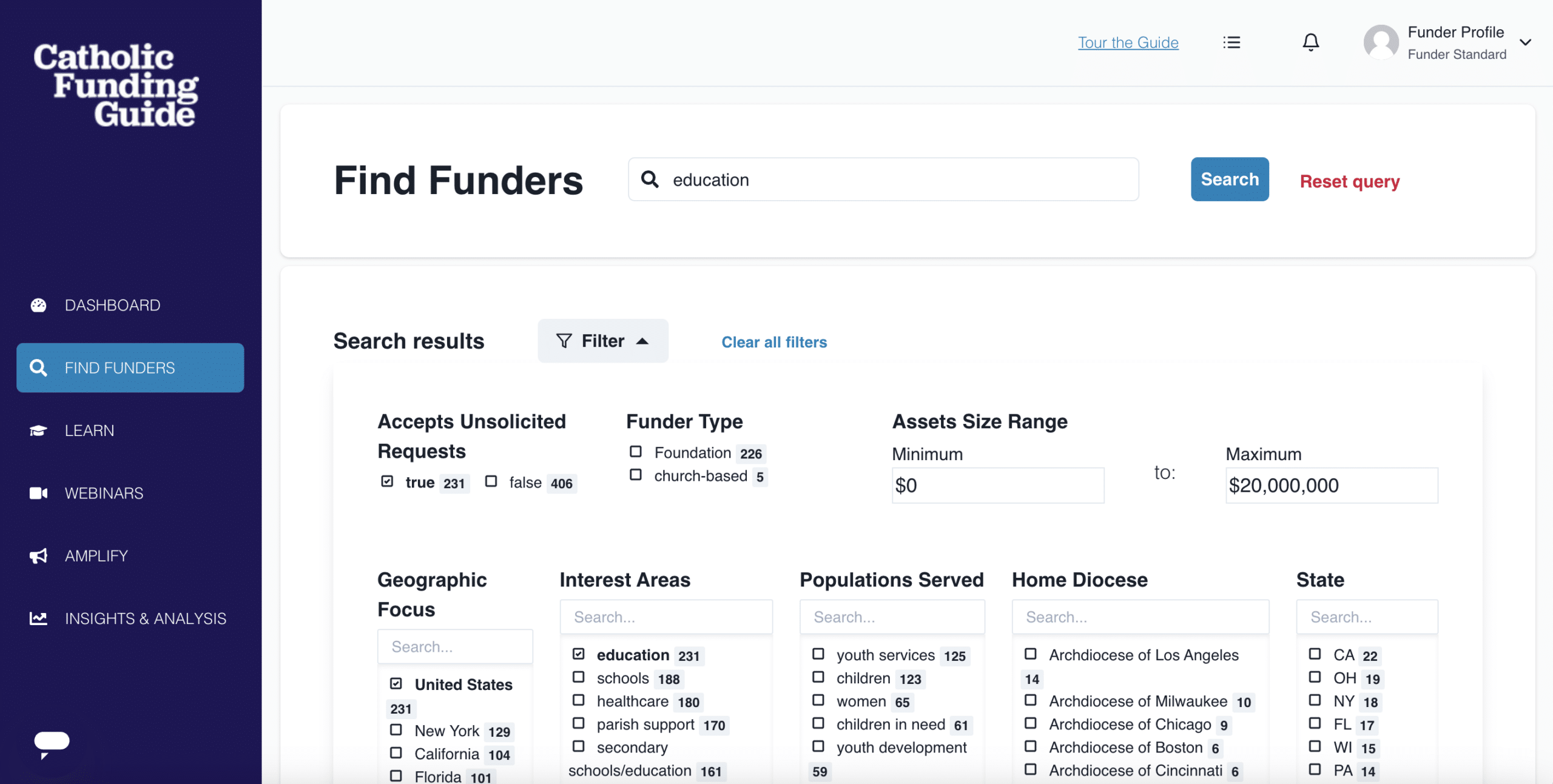How to Know If Grants Are Right for Your Catholic School
Grants are often thought of as easy, if elusive, ways to get much-needed funding. The reality, however, is that grantseeking is often more complicated than that. Schools that want to be successful in their grant writing efforts generally should meet certain criteria.
You might be ready to start writing grants if…
- You have a designated person to handle fundraising. You will need someone to drive your grants initiative forward. While you don’t necessarily need someone whose only responsibility is fundraising, you do need a dedicated person who regularly spends a portion of their time on these responsibilities.
- Your school has a solid budget. Ideally, this budget should allocate funds to future repairs or capital needs, as it can be quite challenging to find grants for such projects. This isn’t always feasible, especially in underserved communities; but it can be difficult to approach grants without this structure in place. Funders tend to be more likely to give to organizations (and schools) that have shown themselves to be financially responsible, indicating that they will put the funds to good use and that they will be able to sustain their school financially for years to come.
- You already reach out to alumni or your local community for financial support. Successful grant seeking stems from community roots. Foundations are made up of people—people who are more likely to give to schools they are connected with. Even larger grantmaking organizations like to see that schools have close ties of support within their community, as this assures them that their gift will not only impact your school, but the broader community. If you have already established relationships within your community and have a strategy in place to communicate within those networks, grant seeking is a logical next step.
- You know how to explain the impact supporters will have with their gift. While it is pivotal to know and communicate how much it costs to educate each child, it is also pivotal to share the personal stories made possible by grants and gifts. For example, you could tell the story of a child who was able to continue attending school, thanks to a scholarship, while their family endured financial hardship.
If any of those ring true for your Catholic school, it may be time to create a grant seeking strategy. Here are tips on how to find and win grants when you determine your school is ready.
Map Out Your Comprehensive Fundraising Plan
While grants are a helpful source of funding, oftentimes, schools overlook the largest source of philanthropic giving in the US: individual donors. In 2022, individuals gave almost three times the amount that foundations gave—a total of $319.04 billion.
Additionally, consider that many family foundations and foundations managed by an individual give in very similar ways to how individual donors give. They may not have formal grant applications and may only give to organizations they have a connection to. Building relationships with individuals is the best way to reach these grantmakers as well.
Consider how your school is currently reaching out to individual donors and, most importantly, building lasting relationships. Here are some ideas you may wish to incorporate into your plan.
Consider an “adopt-a-child” program. This allows people to donate at lower entry points, which can remove financial obstacles for some donors. For example, you could set $500 as the minimum to cover a child’s tuition, and allow multiple donors to sponsor one child. It’s important to involve the students in these efforts to build a personal connection with donors. Arrange an annual lunch for the students and donors; have the students send Christmas and Easter cards; etc. This may require a lot of effort, but can be successful in making personal, lasting connections with funders.
Strengthen donors’ connection with your school. Many donors support a school due to a personal connection they have with the principal, the pastor, alumni, teachers, or other people who have ties with the school. Leverage those relationships to help the donors feel more connected to the school itself. For example, invite them to visit the school to form relationships with students, teachers, and others beyond their original personal connection. This can increase the likelihood that a donor will continue to support the school, even if the person they are connected with, leaves.
For under-resourced parishes with schools, connect with a wealthier parish. Coordinate opportunities for people from the other parish to come and make a personal connection with people at the school, such as through hands-on service. This will help build a relationship that can be fruitful in many ways.
As you get to know people, help them to understand your school’s fundraising needs. Once they are passionate about your school’s mission, ask how they might be able to help. Perhaps their employer has a matching gift program. Perhaps they are on the board of a foundation, or have a connection to someone who is. In the Catholic Funding Guide, you can view board members for foundations, so you can look for opportunities to cultivate those relationships.
5 Tips for Catholic Schools Seeking Grants
When you have determined you are ready to start looking for grants, here are five important points to keep in mind:
- Leverage your connections. There are a limited number of foundations funding schools. You can use the Catholic Funding Guide to find people in your area and try to cultivate personal relationships with them. Maybe you know someone who serves on the Board of a foundation. These personal connections will help open doors to grant opportunities.
- Only pursue grants that are worth it. When you do find potential grant opportunities, make sure they are a good match for your school before undertaking the arduous task of grant writing. At minimum, your missions and geographical locations should align. Additionally, determine if the potential grant amount is worth your time and effort. If the ROI seems low, you might want to look elsewhere for an opportunity. If you do write the grant, follow best practices and avoid common errors.
- Embrace and share what makes your school unique. Consider how your school is distinct from other Catholic schools in your area, and highlight those strengths. If your school was founded by a religious order, emphasize the unique charisms of that tradition. People who were educated in that tradition will feel a stronger connection to your work.
- Determine how much you need in grants. Many successful schools split the income budget in thirds: one-third comes from tuition, one-third from subsidies from the diocese or local Catholic education groups, and one-third from fundraising efforts. Be aware of your school’s financial state and budget so you can move forward with a realistic idea of how much you need in grant money vs. other income sources.
- Understand the grants landscape for Catholic schools. There are a limited number of foundations funding schools. Those that do fund schools often either fund the same schools year after year (due to a personal connection with the specific school), or only fund programmatic needs. Rarely will a foundation fund capital expenses; even more rarely do grantmakers give unrestricted funds. This is why grant seeking is most effective as one component of an overall fundraising strategy—handled after other fundraising efforts have been made—rather than the crux of financial planning.
Is your Catholic school ready for grants? Learn how the Catholic Funding Guide can help streamline your prospect research.



